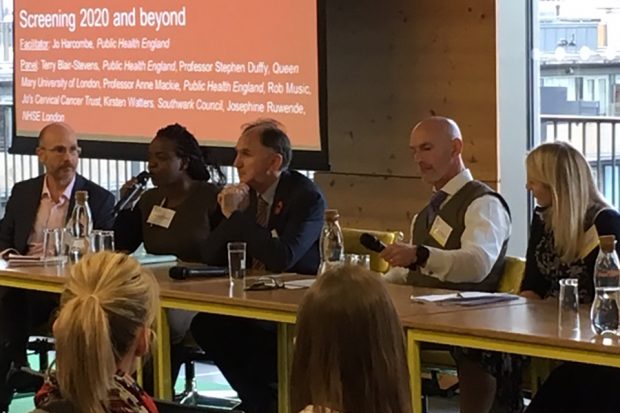
The PHE screening inequalities strategy sets out our commitment to identify and work to reduce inequalities in the English NHS screening programmes.
The national PHE screening inequalities operational group (SIOG) oversees the development, monitoring and consistent implementation of the strategy.
SIOG includes colleagues from within the PHE Screening division and screening and immunisation teams embedded in the NHS, as well as guest representatives from NHS England and Improvement (NHSEI) and other partners involved in the commissioning and provision of screening.
We recently set up a small, dedicated team in the PHE Screening division to coordinate and lead on this work to address inequalities.
This team, led by public health consultant Katie Johnson, aims to ensure a consistent approach to tackling inequalities across all 11 national NHS screening programmes.
The team will work closely with the NHS, local government, primary care and patient and public organisations to make sure we pull in the same direction, using the combined experience and expertise of all partners.
Second national screening inequalities conference
The first ever national PHE Screening inequalities conference attracted around 130 delegates from a wide range of organisations and backgrounds.
Coronavirus means our second national conference will be a virtual event. But that does mean we will be able to accommodate a much larger number of delegates.
We will be holding the conference on 5 February 2021 and the theme will be sharing learning on tackling screening inequalities for people with learning disabilities.
I would encourage everyone interested in the screening inequalities agenda, and particularly those working in learning disabilities, to put that date in their diary now.
Information on how to register for the event and full details of the conference programme will follow in later blog articles.
Please contact helen.p.smith@phe.gov.uk if you are involved in any projects you think we should showcase at the conference.
Watch this space.
Current priorities and workstreams
The COVID-19 pandemic has dominated all our lives in 2020 and has tended to increase existing health inequalities. That is why much of our focus is on supporting screening providers and commissioners to consider the impact of COVID on screening inequalities and providing expert advice on actions to reduce inequalities as services restore.
PHE Screening recently published the Health equity audit (HEA) guide for screening providers and commissioners to help providers and commissioners identify and address inequalities across factors ranging from ethnicity and socio-economic differences to geographical area, age, disability and gender. This guidance is designed to be used in conjunction with PHE’s generic Health Equity Asessment Tool but has been tailored to be more specific to screening issues.
We also recently published national guidance on the effective use of text message reminders for screening and follow-up appointments. Existing evidence suggests text message reminders can have an impact on reducing screening inequalities alongside increasing uptake among people who want to be screened.
One of the main priorities for PHE Screening’s new national inequalities team is to support the development of minimum datasets for the 11 national NHS screening programmes. This data, covering a number of inequality indicators, would then be made available on a regular basis and in an accessible format to help providers and commissioners to identify inequalities and develop HEAs.
Other ongoing workstreams include:
- identifying gaps in screening inequalities research and supporting efforts to plug those gaps
- embedding consistent inequalities principles and objectives in all 11 NHS screening programmes
- developing new national guidance for carers to support the people they care for in understanding and accessing screening
- creating best practice national guidance on the provision of screening in prisons and other secure settings
Get in touch
The SIOG meets quarterly. If you would like more information about its work or have any examples of screening inequalities work you would like to share, please get in touch by emailing helen.p.smith@phe.gov.uk.
PHE Screening blog
The PHE Screening blog provides up to date news from all NHS screening programmes. You can register to receive updates direct to your inbox, so there’s no need to keep checking for new blogs. If you have any questions about this blog article, or about population screening in England, please contact the PHE screening helpdesk.